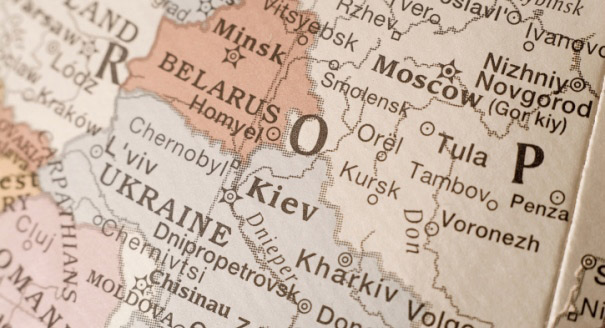{
"authors": [],
"type": "event",
"centerAffiliationAll": "",
"centers": [
"Carnegie Endowment for International Peace",
"Carnegie Europe"
],
"collections": [],
"englishNewsletterAll": "",
"nonEnglishNewsletterAll": "",
"primaryCenter": "Carnegie Europe",
"programAffiliation": "",
"programs": [],
"projects": [
"European External Strategy Project"
],
"regions": [],
"topics": []
}
Eastern Europe and Russia
Fri, May 23rd, 2014
Brussels
Confronted with fresh crises at its doorstep, the EU must reassess its relationship with Russia, the usefulness of its foreign policy toolbox, and the validity of the institutions that guarantee freedom on the European continent.
Carnegie Europe convened a day-long roundtable focused on the EU, Eastern Europe, and Russia, looking at the current crisis in Europe’s East. Discussions were led by Dmitri Trenin, director of the Carnegie Moscow Center, Andrew Weiss, vice president for studies at the Carnegie Endowment for International Peace, Nicu Popescu, senior analyst on EU-Russia relations, Eastern Europe, the South Caucasus, and crisis management at the EU Institute for Security Studies, and Susan Stewart, deputy head of the research division for Eastern Europe and Eurasia at the German Institute for International and Security Affairs (SWP).
The following questions were addressed:
Session 1: Where Are EU-Russian Relations Headed?
- Is Russia becoming a neoimperialist power?
- Is the EU-Russia relationship shifting from troubled cooperation toward confrontation on all levels?
- What are the roles of other players, such as the United States and China, in EU-Russia relations?
Session 2: Future of Europe’s Eastern Neighborhood
- How will countries in Eastern Europe and the South Caucasus evolve in the years to come?
- Should the EU reform the European Neighborhood Policy or the Eastern Partnership, or replace these instruments with a different approach?
- Is there a chance for a cooperative and inclusive arrangement covering Eastern Europe and Russia?
Session 3: Europe’s Strategic Priorities and Policies
- What is the primary objective of the EU’s policy toward its Eastern neighbors and Russia?
- What instruments does or should the EU have in its policies toward its Eastern neighbors?
- How can the EU influence Russian behavior?
Carnegie does not take institutional positions on public policy issues; the views represented herein are those of the author(s) and do not necessarily reflect the views of Carnegie, its staff, or its trustees.